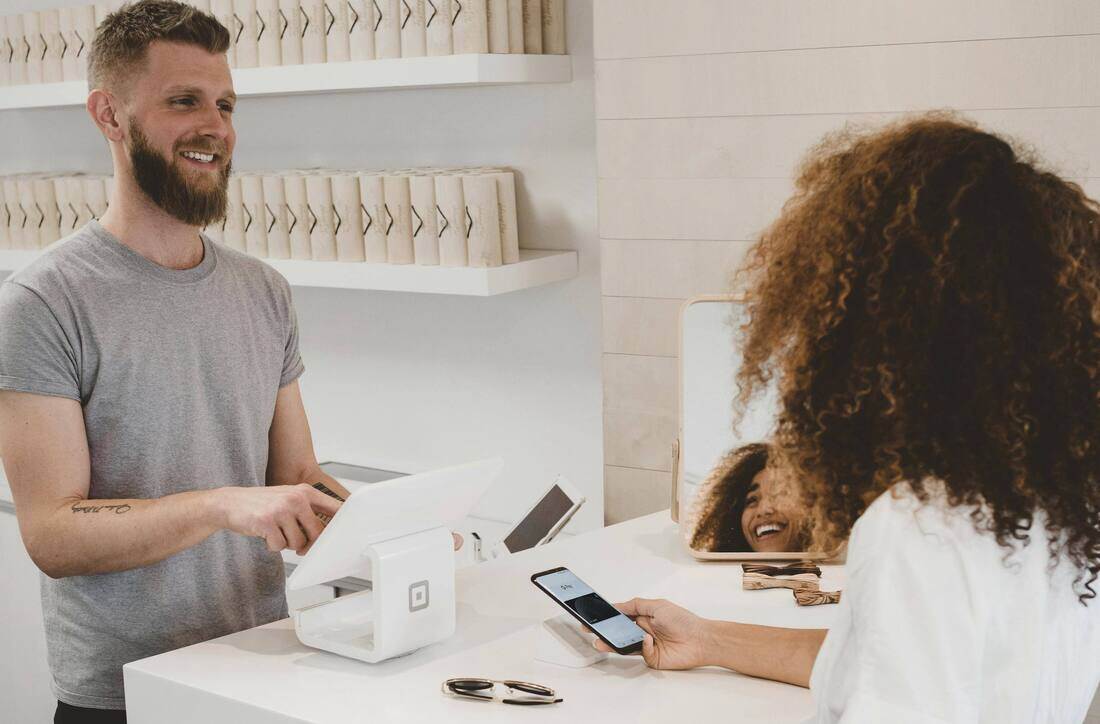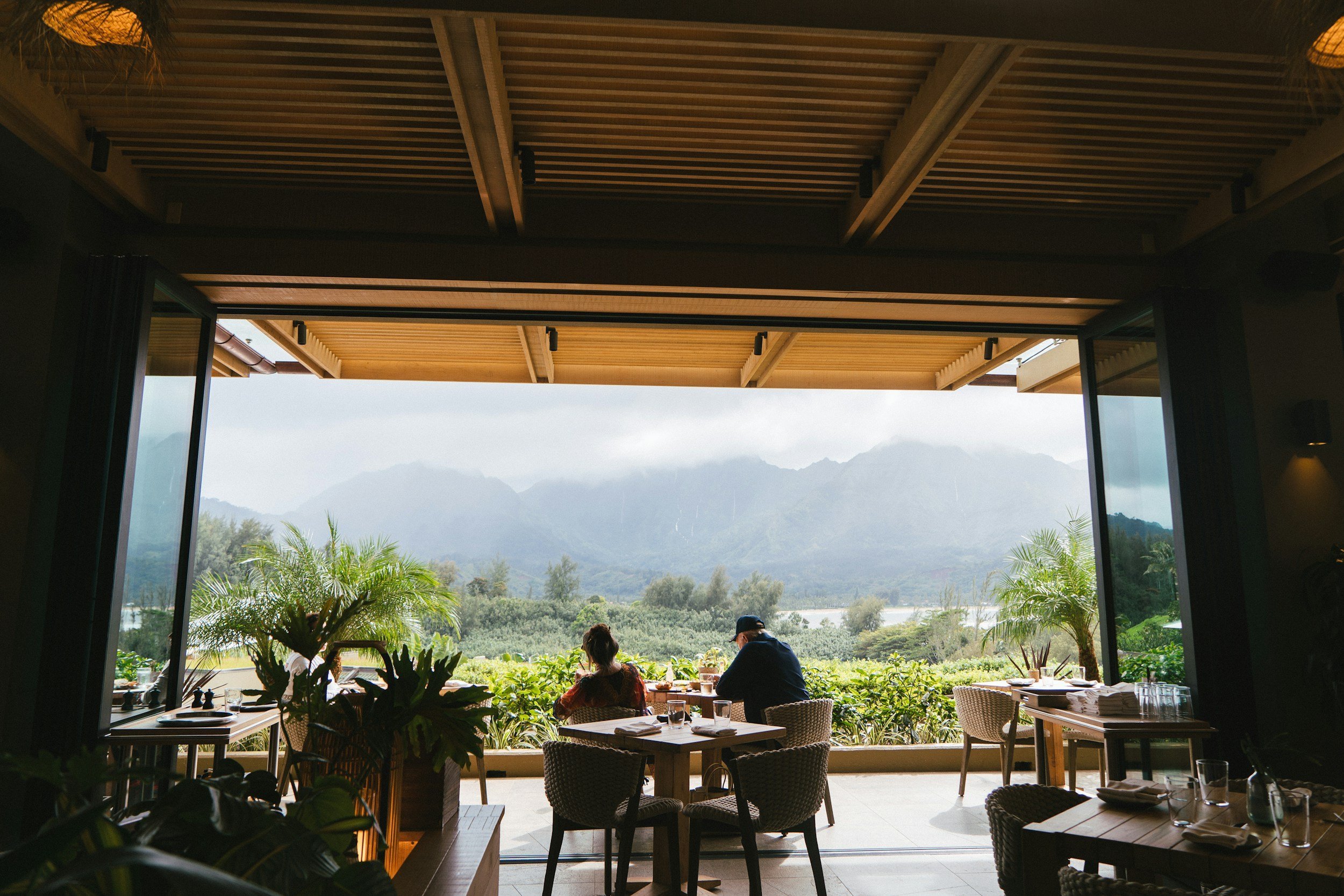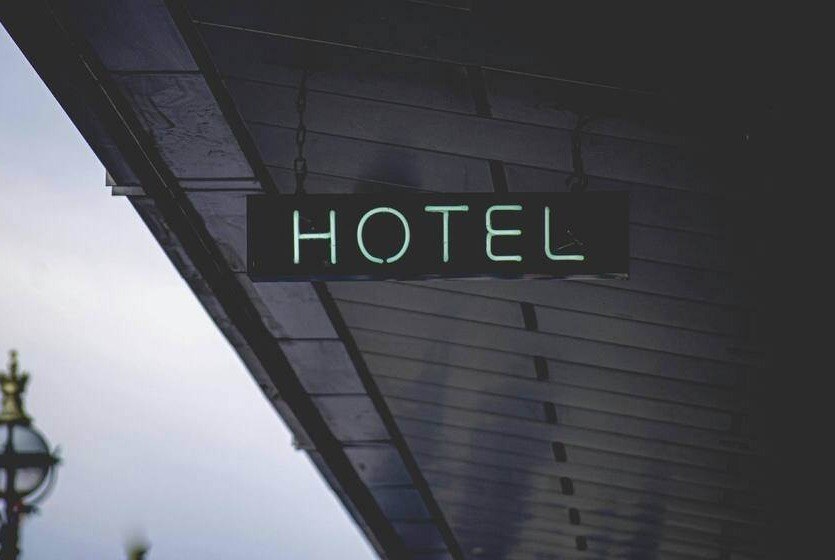Emerging Tech Shaping the Travel and Hospitality Industry in 2025
As we navigate through 2025, the travel and hospitality industry is undergoing a technological renaissance. Innovations in travel and hospitality...
6 min read
The Travel Foundry Updated on February 3, 2025

As the travel and hospitality industry pivots towards an increasingly competitive and technology-driven landscape, marketers must think beyond the traditional “room and board” model. With evolving consumer preferences, technological advancements, and a more dynamic global marketplace, hospitality brands must embrace innovative marketing strategies. By looking outside of the hospitality sector for inspiration, marketers can discover fresh perspectives that resonate with today’s travelers.
In 2025, the most successful hospitality marketing campaigns will be those that break away from conventional approaches and adapt insights from other industries. From retail to entertainment, these sectors have mastered personalization, digital engagement, and customer loyalty—strategies that can be applied directly to the hospitality space.
In this article, we’ll explore key cross-industry insights that can transform your hospitality marketing strategy. We’ll dive into how lessons learned from ecommerce, tech, and lifestyle brands can help you craft compelling campaigns, increase engagement, and boost brand loyalty in the hospitality sector.
Ecommerce brands have set the bar for personalization. From Amazon’s product recommendations to Netflix’s tailored content suggestions, consumers expect a personalized experience across all touchpoints. This trend is increasingly spilling over into the travel and hospitality industries. A recent report from Skyscanner (2024) revealed that 47% of travelers feel confident using AI to assist with trip planning and booking. Additionally, the “Travel Trends Report 2024” by Semetrical highlights that 84% of consumers trust product recommendations and reviews from fellow travelers over brand advertisements. This underscores the growing importance of personalized recommendations and AI in the travel industry.
For hospitality marketers, personalization doesn’t just mean addressing guests by their first name or sending a generic "Welcome Back" email. It means leveraging data to create an individualized journey for each guest, starting from the moment they begin researching destinations to post-stay follow-ups. Tools like dynamic pricing, targeted content, and custom packages can significantly enhance guest satisfaction and drive conversions.
Invest in a Customer Relationship Management (CRM) system that integrates with your booking engine, website, and social media platforms. This will allow you to capture valuable guest data—such as travel preferences, booking behavior, and social media interactions—and use this information to send personalized offers and recommendations. For example, if a guest has previously booked a family suite, consider offering them tailored packages that include activities for children or family-friendly excursions.
Real-World Example: Hilton’s loyalty program, Hilton Honors, uses data-driven insights to create a highly personalized experience for each guest. Members receive personalized offers based on their previous stays, preferences, and even location-based promotions. This level of customization fosters guest loyalty and increases lifetime value.

In the entertainment industry, storytelling is at the core of everything—from blockbuster movies to viral social media campaigns. The success of brands like Disney and Nike proves that compelling narratives create deep emotional connections with consumers. Storytelling has the power to engage, inspire, and even drive action.
In hospitality, storytelling can be used to showcase a brand’s unique selling points, whether it’s the location, history, or guest experience. A well-crafted narrative that ties in the destination and the brand’s ethos will resonate with travelers looking for more than just a place to sleep.
Develop content that tells the story of your brand, not just your amenities. Use video, blogs, and social media to highlight the experiences your guests can expect. Share stories from past guests, offer behind-the-scenes glimpses into your hotel’s daily operations, or showcase local events and culture that travelers can explore. This will give your audience a reason to care about your brand beyond the standard list of amenities.
Real-World Example: Four Seasons’ "Journeys" campaign is an excellent example of effective storytelling in hospitality marketing. Through a series of immersive videos, blog posts, and social media content, Four Seasons captures the essence of each of its global properties. They focus not only on the luxury of their accommodations but on the unique, transformative travel experiences that guests will have. This approach invites potential guests to imagine their next adventure with Four Seasons, creating an emotional connection that drives bookings.
The rise of subscription models in industries like fitness, food delivery, and media consumption is reshaping consumer expectations. Companies like Netflix and Amazon Prime have demonstrated that consumers are willing to pay for convenience, access, and exclusivity. In the hospitality industry, loyalty programs are evolving from simple reward schemes to membership-based models offering more personalized perks, exclusive offers, and insider experiences.
62% of travelers are more likely to book with a brand that offers a membership or subscription model
According to the Travel Trends 2025 Report by Travelport, 35% of travelers are open to signing up for a travel subscription program, with younger travelers, particularly Gen Z, showing a higher inclination. Additionally, 58% of travelers who take at least three trips per year would consider such a program, especially if it includes benefits like priority booking, room upgrades, and local experiences.
Consider creating a tiered loyalty program that goes beyond standard point accumulation. Offer exclusive access to VIP events, personalized itineraries, or even early check-in privileges for members. A well-structured subscription or membership model fosters a deeper relationship with your guests, turning first-time visitors into repeat customers.
Real-World Example: The Ritz-Carlton has embraced a luxury subscription model with its “Ritz-Carlton Rewards” program. Members enjoy not only points but also benefits like room upgrades, access to special events, and curated experiences such as private chef dinners and exclusive golf packages. This elevated experience helps Ritz-Carlton maintain brand loyalty among its high-net-worth guests (Ritz-Carlton, 2024).

The demand for seamless experiences has become a norm across industries, driven by tech giants like Apple, Google, and Amazon. This expectation is increasingly extending to the hospitality sector, where guests now expect convenience and simplicity in all aspects of their stay, from booking to check-in and room access.
A 2024 study by Hotel Technology News found that 78% of travelers are more likely to choose a hotel offering automated front desk services, including self-service check-in and mobile room key features. Furthermore, over 40% of travelers prefer to check in using self-service kiosks or mobile apps, underscoring the growing importance of tech integration in enhancing the guest experience. The shift toward self-service and mobile check-in options has become even more relevant in a post-pandemic world, where many travelers seek touchless, efficient, and streamlined experiences.
78% of travelers are more likely to choose a hotel offering automated front desk services
Hotels that adopt these technologies can not only improve convenience for guests but also stay competitive in a rapidly evolving market.
Focus on streamlining every aspect of the guest experience by incorporating technology like mobile apps, self-service kiosks, or voice-activated room features. Integrating AI-driven chatbots for customer service or offering contactless check-in/check-out can enhance guest satisfaction while reducing operational costs.
Real-World Example: Marriott International has taken a bold step toward embracing technology by integrating mobile check-in and mobile key features into their mobile app. This allows guests to bypass the front desk, access their rooms with their phones, and even request services directly through the app. This convenience not only improves the guest experience but also helps Marriott stand out in a competitive market (Nerdwallet, 2024).
Sustainability is no longer just a buzzword—it’s a driving force behind consumer purchasing decisions. In industries like fashion and food, consumers are increasingly demanding sustainable products and services. The same is true for the hospitality industry, where travelers want eco-friendly accommodations and travel experiences. According to a 2024 report from Booking.com, 71% of global travelers say they are more likely to book a hotel if it has sustainable practices in place.
71% of global travelers say they are more likely to book a hotel if it has sustainable practices in place
Incorporate sustainability into your brand’s messaging by highlighting your eco-friendly initiatives—whether it's reducing waste, using renewable energy, or offering locally sourced food. Make sure these initiatives are communicated clearly through your website, social media, and booking channels to attract environmentally conscious travelers.
Real-World Example: Accor’s “Planet 21” program is an excellent example of integrating sustainability into a hotel brand’s core. The program focuses on reducing carbon footprints, eliminating single-use plastics, and sourcing food responsibly. By highlighting these initiatives through digital marketing and guest communications, Accor has positioned itself as a leader in sustainable hospitality.
As we move into 2025, the hospitality industry must go beyond traditional marketing strategies. By drawing inspiration from ecommerce, entertainment, tech, and other industries, marketers can create more personalized, seamless, and sustainable experiences for their guests. The key lies in staying adaptable, adopting new technologies, and always putting the guest experience at the heart of your marketing efforts.
To stay ahead of the competition, it’s time to think outside the room. Whether you’re looking to build stronger guest loyalty, craft compelling brand stories, or integrate cutting-edge technology into your operations, The Travel Foundry is here to help you bring these cross-industry insights to life.
Ready to elevate your marketing strategy? Contact us today to learn how we can help you innovate, engage, and transform your hospitality brand in 2025 and beyond.


As we navigate through 2025, the travel and hospitality industry is undergoing a technological renaissance. Innovations in travel and hospitality...

As we step into 2025, the travel and hospitality industry is experiencing transformative shifts. Understanding these hospitality marketing trends is...

Beyond Just Bookings In the hyper-competitive world of travel and hospitality, guest experience has become the ultimate differentiator. Today’s...